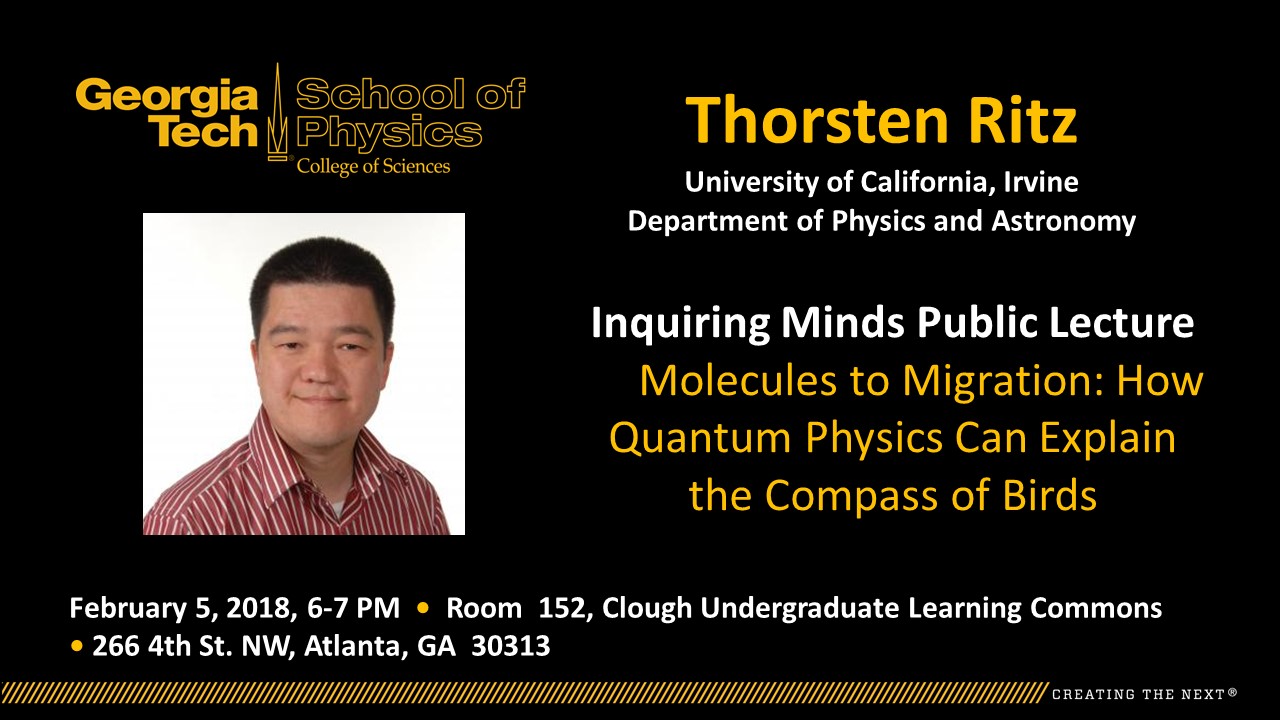An Inquiring Minds Public Lecture from the School of Physics
The world of quantum physics appears mysterious, even spooky, and far removed from everyday phenomena we can observe in the world around us. Especially the realm of living organisms was thought to be far too disorganized and noisy for quantum phenomena to play a role.
Recently, however, clues have been mounting that the rules governing the subatomic world may play an unexpectedly pivotal role for phenomena in biology. One particularly fascinating example of this emerging field of quantum biology is bird navigation.
Even without GPS, birds are able to travel up to thousands of miles and return to their original location, aided by a physiological magnetic compass sense. Despite having been discovered more than 50 years ago, the underlying mechanism for this “sixth sense” still remains a mystery.
Thorsten Ritz will present evidence for the idea that a quantum mechanical reaction may lie at the heart of the magnetic compass of birds and possibly other organisms.
About the Speaker
Thorsten Ritz is a biophysicist and assistant professor in the Department of Physics and Astronomy at the University of California, Irvine. Ritz received his Diplom degree from the University of Frankfurt in 1996 and then joined Klaus Schulten’s theoretical biophysics group at the University of Illinois. He finished his Ph.D. under the direction of Schulten and Nienhaus at the University of Ulm in 2001. Ritz received a postdoctoral fellowship from the Fetzer Institute and worked in the Phillips group in the Department of Biology at Virginia Tech and with Peter Hore’s group in the Department of Physics at Oxford.
Ritz’s area of science is very broad. He has already published 13 papers at the interface of the physical and biological sciences. Currently he is interested in the assembly of protein aggregates in cells though his study of light-harvesting systems (photosynthesis). He is also interested in the effect of weak magnetic fields on biochemical reactions, in particular on photosynthesis. This route led him to study and propose a new chemical mechanism for how birds use the geomagnetic field to provide them a sense of direction. He has proposed several experiments to verify this new idea, which could solve a very fundamental problem in sensory biology.
Event Details
Date/Time:
-
Date:Monday, February 5, 2018 - 7:00pm to 8:00pm
For More Information Contact
JC Gumbart



